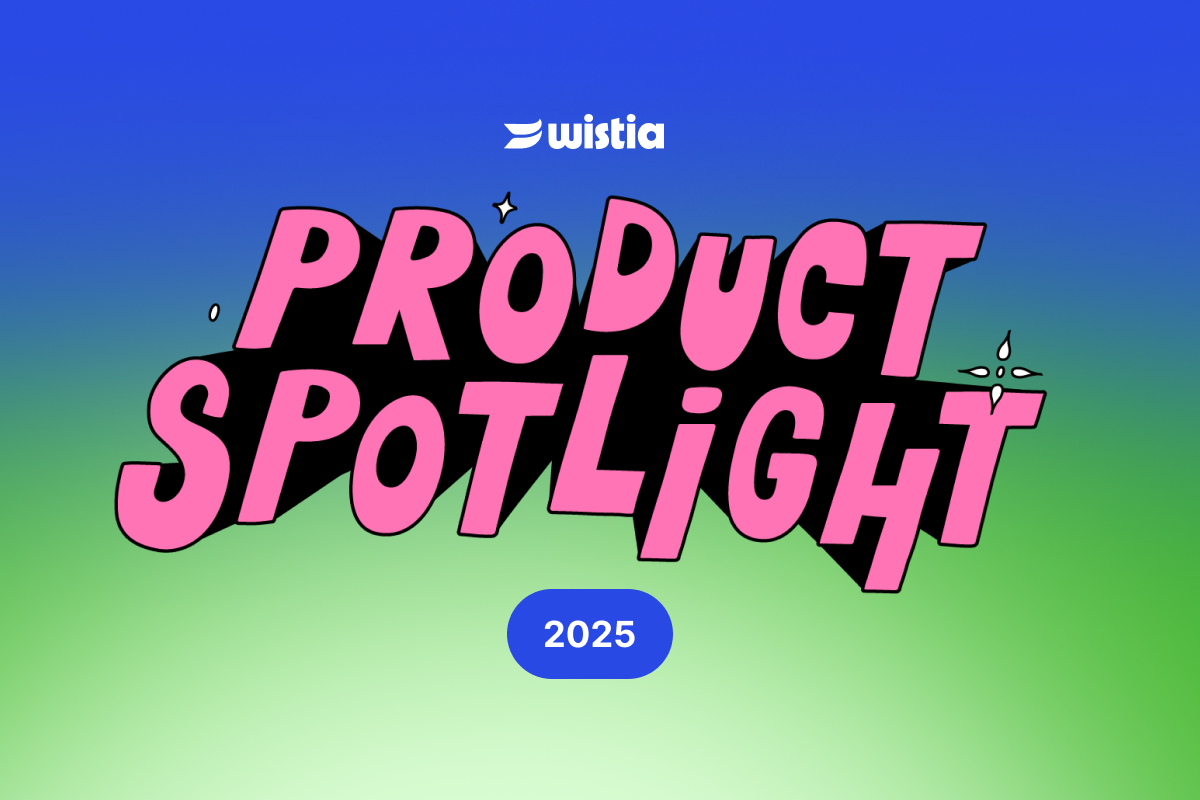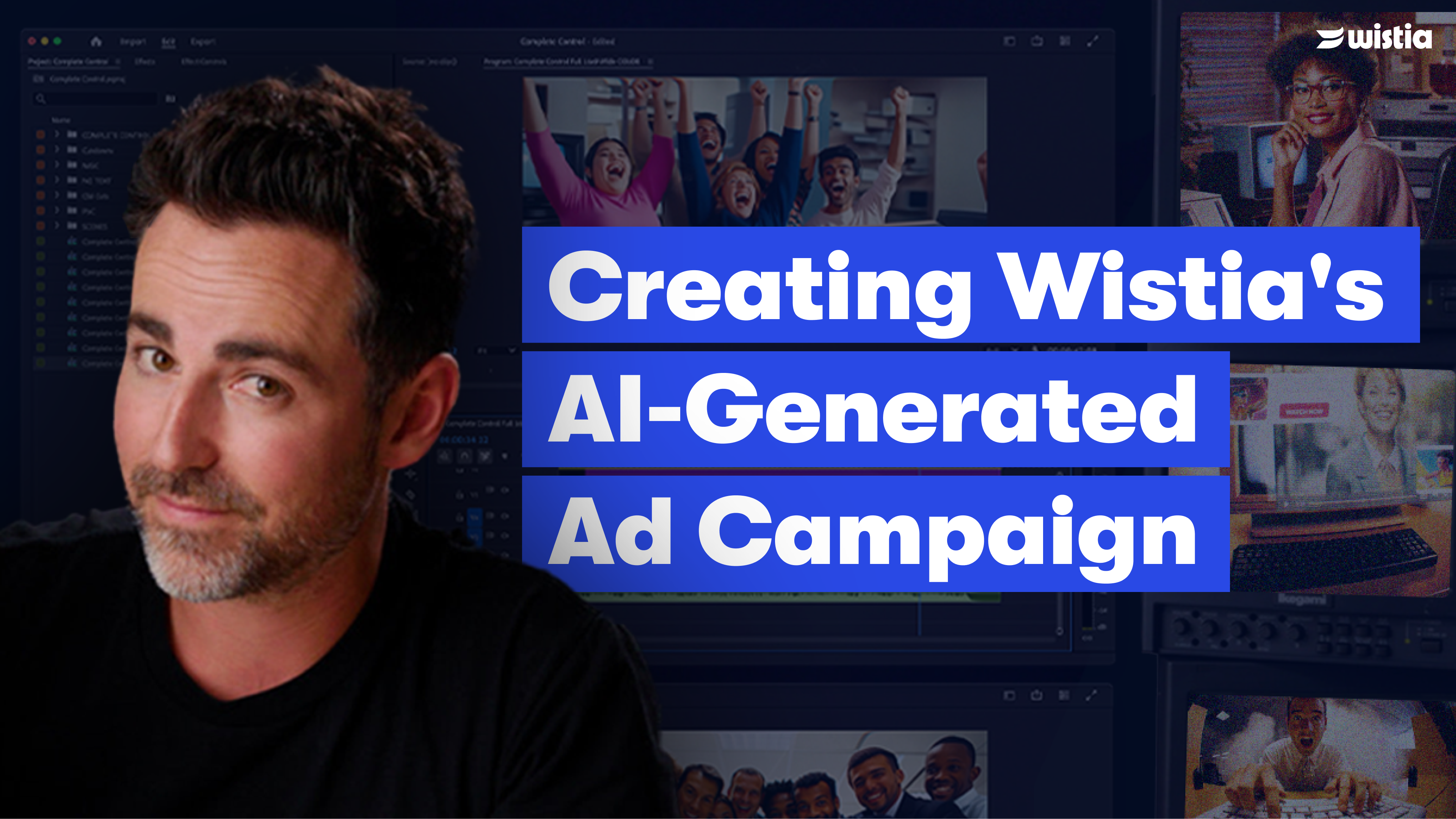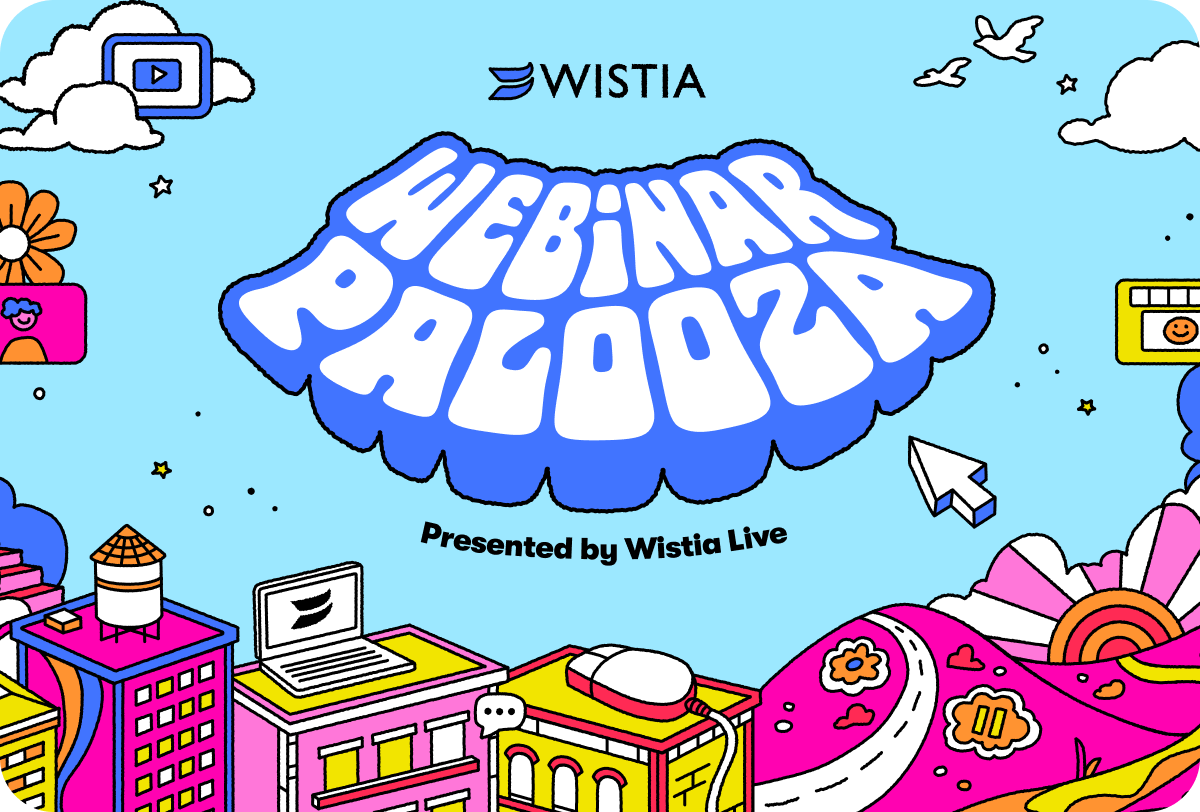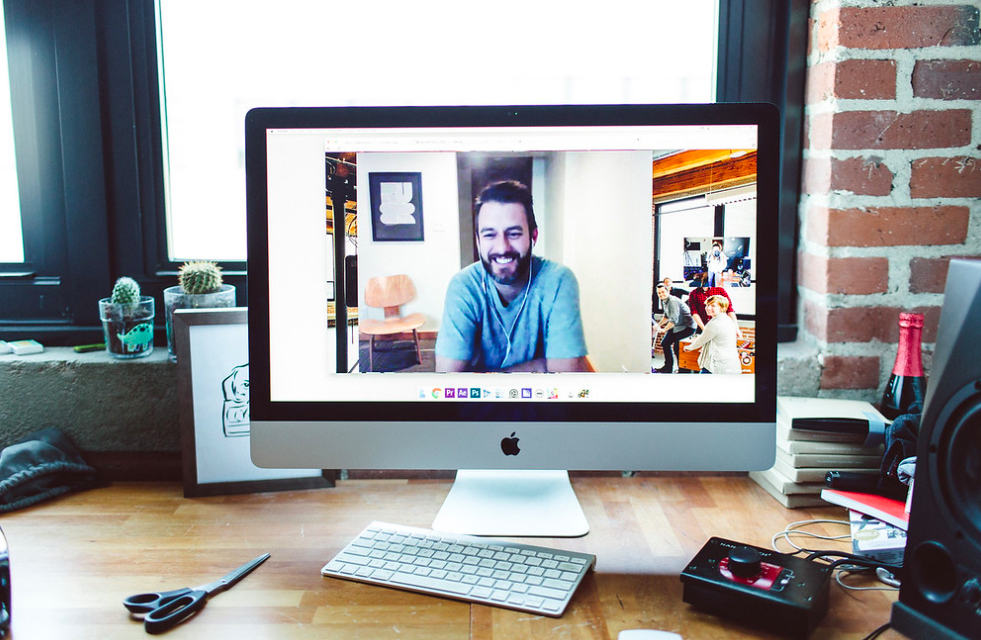Staying Creative in Quarantine: An Interview with Jenny Donheiser
May 21, 2020
Topic tags
Amid the global pandemic, we’ve seen people across a number of industries pivot from their original plans and adapt to working remotely. Recently, we highlighted some of the ways folks in creative fields have continued to forge ahead despite the circumstances. And we have to say — we’re super inspired by the work that’s being put out into the world under these unique constraints!
To keep the inspiration and creativity flowing, we wanted to spotlight one of the freelancers who worked with us as part of the Wistia Creative Alliance. The WCA is a collaboration between the Wistia team and 30 freelance creatives that aim to bring more moments of delight to our shared community. Jenny Donheiser was one of the creators who was part of the Director’s Cut series. Jenny took us through her journey of developing, writing, and performing in an autobiographical short film called Mama Jane. The short went on to be shown at a number of film festivals in 2018 and eventually premiered online in 2019.
Get an in-depth look inside her mind as she breaks down her work and gives commentary on her process for Mama Jane:
We chatted with Jenny to find out more about her background, how the pandemic has impacted the way she works, how she’s staying creative these days, and much more. Let’s jump into the full interview, shall we?
Wistia: Give us a little bit of background on you and what you do — day job, extracurriculars, whatever you feel like sharing!
Jenny: I studied acting at NYU, but by the time I graduated I wasn’t sure if that’s exactly what I wanted to do. I realized I more so liked writing and producing content with my friends. At the time, everyone was making a web series. So, I co-wrote and produced a webseries with my roommate at the time, and I think we made something like 12 episodes. I continued producing and creating comedy videos for a while, and then I wanted to branch out from that and get into the festival circuit which is when I made Mama Jane.
Over the last couple of years, I’ve started collaborating with my friend Mary Dauterman who I grew up with. She was working in the Ad agency world and wanted to start directing and make her own content, so we began writing together and now we’ve made five short films together. We’re also taking the time during quarantine to develop a feature and a pilot since we’re unable to film.
Wistia: How has the pandemic impacted the way you work or how you get things done?
Jenny: I’m feeling equal parts pressure to create, but also to take care of myself. It’s been a real journey balancing those two things and not beating myself up on days I don’t do anything. Right now all we can really control is writing so that’s what Mary and I are doing. She’s an amazing accountability buddy and helps me navigate my creative goals on a day-to-day basis.
“I’m feeling equal parts pressure to create, but also to take care of myself.”
We’ve also found that people in development and production are trying to figure out ways to maintain relationships during this time, so we’ve been having some good Zoom meetings and getting feedback on what we’re working on.
Wistia: How has your collaboration shifted now that you’re remote?
Jenny: Mary and I both live in Brooklyn. Normally, we’d have a meeting once every other week in-person to brainstorm and share what we’ve worked on. Now we’ve just converted to Zoom and WriterDuet. We’re making it work. Sometimes I feel we’re able to concentrate a little better on Zoom because in-person we’re usually cooking or having a drink. In a way, it’s streamlined us to get to what we want to talk about. But, for the most part it has stayed pretty consistent with what it was before.
Wistia: What other changes have you seen? Do you think they’ll carry on after quarantine is over?
Jenny: Festivals are adapting to being online. Being online, you can reach so many people. No one has to travel to a film festival. You can send a link to your family in another state or across the country. Platforms have also been wanting to make people’s work available. Amazon recently showed all of SXSW’s shorts. I wouldn’t have been able to see those shorts for another year or something had they not made them available.
Film festivals are great and fun, but you have to wait a year for your film to go through the festival circuit before it can be online and that can be hard as a creative because you want your work to get seen. Giving more people access online is something that can’t hurt because you’re possibly getting your short seen on a bigger scale.
“Giving more people access online is something that can’t hurt because you’re possibly getting your short seen on a bigger scale.”
Wistia: Where have you been finding inspiration for the work you do and what you create?
Jenny: It’s definitely harder to find inspiration right now. I chose to live in New York because you’re constantly around art of all kinds. Not being able to experience that has been a hit. I’ve been trying to find other points of inspiration through television / movies. There’s an amazing production company I’ve worked with called SLMBR PRTY, and on top of being a production company they host networking events for women in production, and they just had their first Zoom event around the Sundance feature “Never Rarely Sometimes Always.” We all watched the movie, and then they held a panel and Q&A with the director. I can’t recommend that film enough. I’m also reading more which can be a great way to get inspired.
Wistia: When it came to creating “Writing Autobiographically” as part of the Wistia Creative Alliance, how did you think through making your story so engaging despite just recording a webcam video at home?
Jenny: I wrote out what I wanted to say, and it was a fun exercise thinking through what my process was for creating Mama Jane. Everything ended up being much longer than what was needed for the video, so I edited it down. I went back after I recorded and was like “Okay, here is where I’m saying the root of what I wanted to get across and I can cut all the other stuff around it.” I also put in some clips from Mama Jane that demonstrated what I was explaining like the organic natural relationship I was trying to create between the characters.
Filming yourself talking for some reason feels so weird, I tried to riff and go off the cuff at some points, but was like “Nah, I have to write it out or I’m going to go off the rails.” So I made myself a mini teleprompter and read from that mostly.
Wistia: Lastly, we’re wondering if you have any advice for creatives out there during this time?
Jenny: Be kind to yourself and don’t judge yourself for whatever is happening in your emotional and physical life. It’s tricky to get inspired. Don’t judge what you create, just write even if it’s not the masterpiece you’re eyeing to make. Allow yourself to experiment, whether it’s journaling or writing a stupid sketch. No one is creating pressure for you but you, so make it cathartic — make it part of your process. Do whatever gives you joy right now because that’s what we all need.
“No one is creating pressure for you but you, so make it cathartic — make it part of your process.”
Well, we’re sure inspired by Jenny’s advice for folks in creative fields right now. If you haven’t watched her breakdown of Mama Jane, we encourage you to give it a watch. Be on the lookout for more chats with freelancers from the WCA in the weeks to come, and tell us about how you’re continuing to stay creative these days in the comments below!






